New Year, new reading intentions, same me
Why setting goals leads to frustration and how I'm approaching intentions in 2025
Hello and Happy New Year! I’m sharing this later than planned because my year started with a digital detox that I enjoyed a little too much, and I’m still adjusting to being back online. I’m also writing this from India, where I’m doing an intense yoga training course and haven’t had as much downtime as I might have anticipated. I hope your year has started off well and you didn’t feel too sad on Blue Monday — this is always the toughest point in January, when the new year’s resolutions have wavered and your realise how much longer we have to wait until Winter is over. If my earlier post on Wintering hasn’t helped at all, then perhaps this one might shift your attitude towards intentions and goal setting.
Digital Detoxing
Before I get into it, I’d love to tell you about the digital detox I went on with my boyfriend, Josh for three days of quality time before I flew to India for a month. We went to stay at one of the Unplugged cabins in Hertfordshire and had a lovely time. The cabin was cosy but fairly basic, with a barely-functioning radio/cassette player, a compost loo and a small, built-in bed. When we arrived, we locked our phones away in the box they provided along with a map and compass, Nokia mobile (to book pubs and taxis or contact the team in case of any emergencies) and a polaroid camera with 10 sheets of film. It may seem ridiculous to pay to do this when you could just put your phone in a drawer at home, but the environment made the detox feel much more natural than it would have in London.
We’d brought enough food for three days and enjoyed taking time to cook for one another (disclaimer: this is a total lie as Josh cooked every meal for me) while listening to Heart Radio, the only station with signal. There was a wild storm the day we arrived and we worried the bad weather would ruin the trip, but we managed to do a long walk one day (racing back just in time for sundown, which would have been hard to navigate without a torch…) and a sunny run on another one. I loved navigating using a map instead of relying on my phone, and we both agreed that we got more of a sense of the area than we usually would. This might not be a surprise to anyone who travelled before iPhones were a thing but it really enhanced my experience and I’ll definitely take this lesson away from the experience.
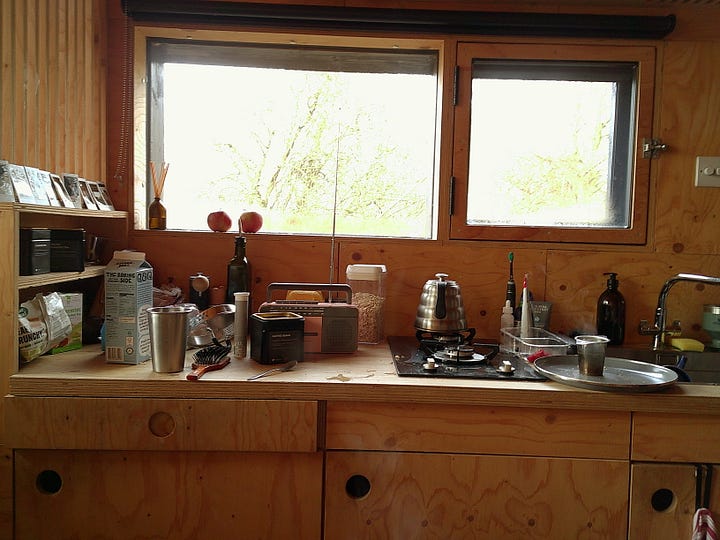
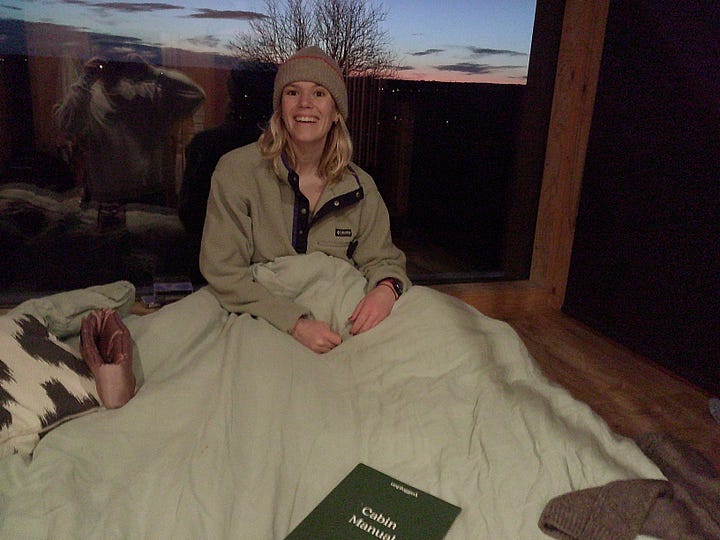
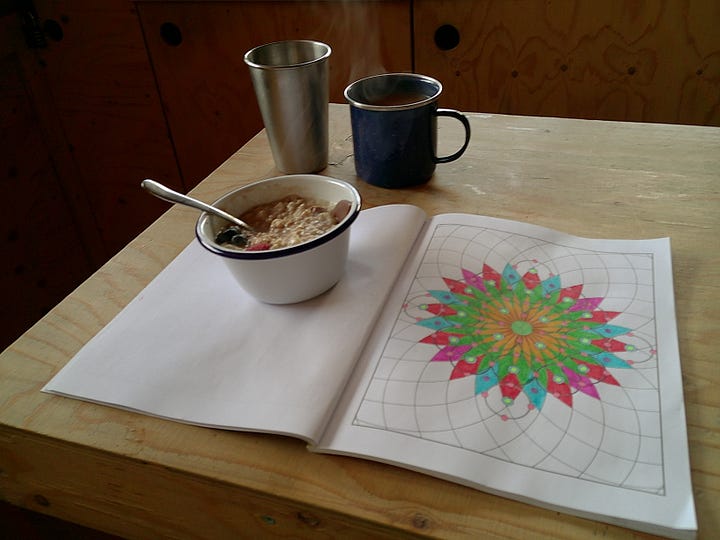
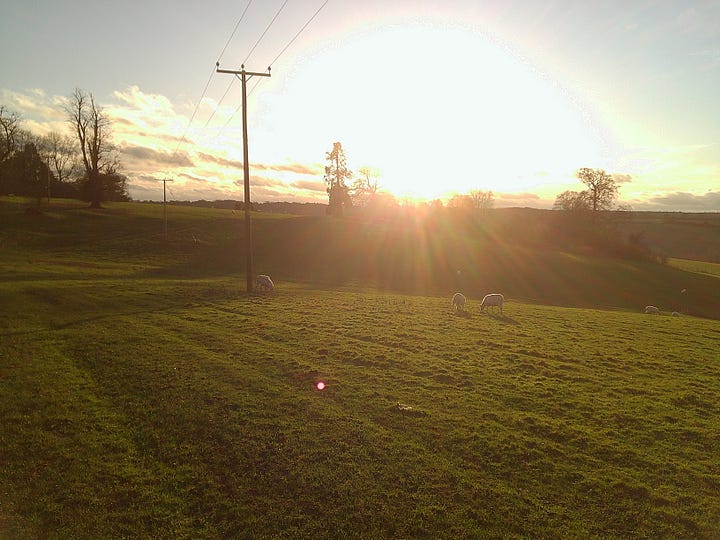
I’d packed quite a few books, but the cabin was solar powered and the lights were quite dim by about 9pm, so I mostly read on my Kindle. I started Orbital, which won the 2024 Booker Prize and which took me surprisingly long to finish considering how short it is. It’s a really beautiful novel about six astronauts on a spaceship that circles the earth 16 times a day. I haven’t read anything like it; the descriptions of life as an astronaut are so vivid, it’s really hard to believe the author, Samantha Harvey isn’t one herself. The novel contains some beautiful meditations on the magic of planet Earth, from the miracle of the Big Bang and our relative insignificance to descriptions of the continents, topography and landscapes the spaceship passes from 250 miles above the surface of the planet. Harvey also captures the reality of life in space in minute detail, revealing how a job that seems to offer the ultimate freedom — escape from the earth itself — is actually the most rigid and restricted of all. There are 6 astronauts aboard and she offers insights into their different experiences, realities and personalities as they interact with one another, fulfil their different roles and admire the planet beneath them. Harvey also writes about the progress in space exploration; how these astronauts, who’ve abandoned their homes and families for 9 months to live with strangers, subjected their bodies to all kinds of pressures and put their whole lives at risk, are mere guinea pigs compared to the moon landings, let alone voyages to Mars. It’s a stunning and thought-provoking read and I’d recommend it to anyone who would like to change how little they know about space.
Vision Boarding
I’d also packed several notebooks and a pile of magazines. I’ve recently got back into collaging, an activity I used to do a lot when younger but which I’d completely forgotten about until a few months ago (I’ll write more about this next time). I’ve always been a fan of manifestation, but I usually write down my goals and hide them away until the end of the year. The ‘vision boarding’ approach, on the other hand, encourages you to place your collage somewhere you can see it; it contains images and words which represent what you want your life to look and feel like. I love the exercise, both for the more relaxed and playful approach to goal-setting and also for the mindfulness of flipping through magazines, cutting and glueing. It makes me feel like a child again.
Before I made my new year’s vision board, Josh and I took some time to reflect on the year gone by and look ahead to 2025. I’d heard about the ‘Year Audit’ on Mel Robbins’ podcast and thought it would be quite a good activity for us to try because so many resolutions and intentions are forward-focused and fail to take the past into consideration. Without taking time to think about what happened last year and why, you’ll just find yourself falling into the same habits all over again. As I write this, I realise how similar this is to some of the learnings I’ve already made on this yoga course: change comes from conscious awareness, rather than suppression. If there’s something in your life that you want to shift but you don’t do the work to really understand it, you may be able to suppress the feeling, behaviour or experience but the patterns will still remain. By looking at the entire year gone by, you can really dial into any overarching themes or patterns and then decide if you want to bring them forward with you into the new year. I liked it a lot.
We followed the structure suggested in the podcast, but I appreciate it’s quite a ‘tech bro’ approach to intention setting. I might not use exactly the same approach next year, but it was still fun to try something different.
Here’s how we did it. For each of the below questions, we took 10 minutes to reflect and write down our thoughts before sharing with each other.
What were the highlights of the past year?
What were the low points of the past year?
What did you learn about yourself last year?
What would you like to stop doing in the new year?
What would you like to start doing in the new year?
What would you like to continue doing in the new year?
Think of one small thing you can do right now to move your life in the direction you want it to go.
I had a really bad year in 2024 and wanted to avoid setting ‘Goals’ for 2025, as the associated feelings of success or failure don’t align with my values as much any more. Instead, I wanted to set attitude and behaviour-oriented intentions to ensure that I live more consciously this year and can readjust my habits and patterns if I am unhappy later in the year.
I found it helpful to list everything good I could remember from 2024 — including small things like a swim in the sun or a drink with a friend — as I have a tendency to write things off completely. Despite illness, sadness and a lot of darkness in 2024, there were also many moments of joy, and it was great to discuss them and take note of any overarching themes. For example, it was easy to identify that several of my happiest memories involved quality time with family and friends, helping me set a clear intention to spend more time with the people I love in 2025. It was similar with the low points, actually: there was a clear theme, and it helped me to resolve that I want to live more authentically this year.
It was a beautiful ritual to do with a partner, especially on a digital detox, and I enjoyed defining my personal words of the year thinking about how I can live with intention and integrity in 2025.
This kind of exercise is my favourite: the perfect combination of spiritual, creative, practical and goal-oriented, and I actually thought it would be fun to ask myself similar questions in terms of my reading habits.
2025 Reading Intentions
I already covered my 2024 reading highlights in this wrap-up post and also shared some of the things I learned about myself as a reader from analysing my reading stats. As explained in the post, I don’t like to write about books I don’t like (although I suppose the low moments in my personal life generally corresponded to slow reading patches) and I learn a lot about my habits each December by analysing my statistics at the end of the year.
Here are some things I’d like to stop doing in 2025, when it comes to my reading habits:
Setting reading targets
Comparing my reading to others
Only reading new publications or prize lists
Only getting my recommendations from social media
I’d like to start:
Using Storygraph
Reading more classics
Reading more translated fiction
Reading more in French
Writing longer-form reviews
Using the library
And some things I’d like to continue doing in 2025:
Sharing on WhatElizaReads, both here on Substack and also on Instagram
Writing reviews on NetGalley
Writing fiction
Reading according to my mood
Working through the unread books I already own
As I already mentioned, I’m doing a yoga course at the moment (updating my skills so I can start teaching again!) We have a wise and knowledgeable philosophy teacher called Vishu, whose words are often so apt and quotable. This week, we’ve been studying the chakras and learning about yoga nidra. Have you been to a yoga nidra class before? It’s an incredible practice where you lie down and are guided through a meditation that can help you enter a deep state of conscious awareness (or sleep, in many cases). This practice uses different techniques to move you from the physical to the subtle body, through the layers of breath, mind (and emotions) and intellect.
The intellect layer is not about intelligence, success or status, but rather a sense of inner wisdom. It’s the level where you set intentions (your sankalpa), use affirmations and make decisions. Previously, Vishu had advised against setting goals, saying that “a life with goals leads to frustration”, whereas “a life with intuition leads to transformation”. In yesterday’s discussion about intentions, I asked for some clarification about the difference between goals and intentions, and this is what the group concluded:
Intentions are encouraging; goals are limiting
Intentions are open; goals are closed
Intentions are not about being competitive, lustful, angry, jealous; goals can be motivated by these negative emotions or impulses
Intentions are immaterial and abstract; goals are definitive and material
I found these distinctions helpful and feel they align with the attitude I’ve taken toward vision boarding and intention setting this January. Rather than setting specific, numerical goals—read X number of books, achieve X at work, grow my business by X amount—it feels more encouraging and open-ended to set intentions. It’s also more fun: as Vishu says, there’s no enjoyment to be found in achieving specific goals because you’ve already seen them, whereas the whole point of transformation is that it exists outside your expectations and beyond your past experiences. What do you think? How can we adapt this yoga philosophy to our fast-paced Western lives?
2025 Publications
I know you’re here for the book recommendations, not the yoga chat, and I certainly have lots on my radar for 2025. There’s a long list of publications I’m really excited about, but there are countless other lists out there if you’re looking for pre-order suggestions. There’s are new books by Nicola Dinan, Han Kang, Chimamanda Ngozi Adichie, Emily Henry, Curtis Sittenfield, Emily Austin, Andrew Lipstein, Torrey Peters, Natasha Brown, Sakaya Murata, Emily Jane Unsworth, David Szalay and many more…
The debuts I’m most excited to get my hands on are Seán Hewitt’s Open, Heaven, Louise Hegarty’s Fair Play, Fundamentally by Dr. Nussaibah Younis and The Artist by Lucy Steeds. There are also some stunning first novels I read for work last year, either on submission or during the editorial process: Among Friends by Hal Ebott, Discontent by Beatriz Serrano, The Persians by Sanam Mahloudji, Happiness Forever by Adelaide Faith. I’m really excited for these wonderful stories to be out in the world.
I’ve already posted short reviews on my Instagram of a handful of brilliant new books that I was lucky enough to read in advance via NetGalley. However, I wanted to include (and expand on) them here now that we’re closer to publication, so you can add them to your reading lists:
Confessions by Catherine Airey - published on 23rd January
I can’t believe this is a debut! Confessions is a rich, layered novel about three generations of women, set between New York and the west coast of Ireland, spanning from the 1970s to 2023. As the title suggests, it’s a story of secrets, shame and religion, with a central focus on reproductive rights.
The novel begins on 11th September 2001, when Cora’s father dies in the 9/11 attacks, leaving her a 16-year-old orphan. When a letter arrives from an aunt she’s never heard of — the estranged sister of her mother, Máire, who tragically took her own life seven years earlier — Cora packs a suitcase and flees to Ireland, returning to her parents' birthplace and the location of the mysterious ‘Scream School’ which has fascinated her since childhood. In the second section, the perspective shifts to her aunt Róisín’s childhood, and we learn more about the imposing building in their hometown of Burtonport, as well as the dynamic between the two sisters. The novel continues in this way, unfolding the stories and secrets of the women in the family — Máire, Róisín, Cora, and her daughter, Lyca — while also offering insights into the life Cora’s father, Michael. Each section begins with a short, formally distinct extract from a text-based choose-your-own-adventure video game called Scream School, which invites the reader to decide how the story unfolds. While the reason for these passages is initially unclear, the game eventually becomes central to the story’s plot, and the school itself takes on a character-like role.
Moving back and forth across the Atlantic between the 1970s and the present day, the characters’ struggles, suffering and confessions paint a rich but disturbing picture of women’s rights — from mother and baby homes and backstreet abortions in Ireland to sexual violence, abuse and addiction across the pond. Airey deftly weaves these dark themes alongside moments of love, hope, art and beauty, often switching the perspective before the subject matter becomes too heavy. Plot and politics are part of the fabric of this novel, but it’s clear that character is of utmost importance to the writer. The five protagonists’ confessions reveal their fundamental humanity, as they keep secrets from one another out of love and fear, rather than malicious intent.
At its heart, Confessions is a moving family drama about two sisters who let their secrets come between them — a novel that underscores how every choice we make moves our future in a different direction. But how do we know which path to take? Life and novels cannot be done over like a video game; we only get one shot.
We Pretty Pieces of Flesh, Colwill Brown - published on 20th February
We Pretty Pieces of Flesh is a book that really grows on you. The combination of its literary title, the striking juxtaposition of a muted image with bold text on the cover, and the strong Yorkshire dialect of the prose all make it difficult to place at first. It takes a while to work out what’s going on and to situate the story in early-2000s Doncaster, but once you’ve got to grips with the three interchanging voices, the story really gets into your heart.
The novel follows three best friends—Rach, Shaz, and Kel—from the age of eleven to thirty, revealing their shared memories through their distinct perspectives. There are early sexual experiences, first boyfriends and wild nights out, as well as darker moments of addiction, loneliness and struggles to make ends meet. The girls’ personalities are sharply defined: Shaz is the confident troublemaker, leading the more cautious Kel and Rach astray; Kel, who dreams of being a teacher, struggles to take a firm stance on anything; and Rach is torn between wanting to be like Shaz and mistrusting her friend's exaggerated stories. This is a story about best friends on the cusp of adulthood, enjoying their last moments of innocence before their bodies become “pretty pieces of flesh”, their paths begin to diverge and terrible secrets threaten to come between them.
We Pretty Pieces of Flesh doesn’t read like a debut. The writing is so assured and the structure is skilfully conceived, with the tension building towards a nostalgic night out in Donny after several years apart.
I’d recommend this novel for fans of Shuggie Bain and Trainspotting, who like gritty, voice-led stories with strong sense of place. While some readers may find the dialect-heavy prose and the intertwining voices challenging to navigate, it’s right up my street, and I can’t wait to see how it will be received when it’s published in February.
Audition by Katie Kitamura - Published on 17th April
Katie Kitamura's third novel once again defies easy interpretation. Audition opens in a restaurant, where an older woman dines with a young man. She's a well-known actress rehearsing for her next play; he could almost be her son—but that would be impossible. Or would it?
The unnamed actress is struggling to fully inhabit her new character, unable to bridge the gap between her "private and performed selves." As she develops a closer relationship with the young man, Xavier, her life begins to change. She gradually loses her grip on her workplace, household, and marriage, her position of authority up in the air.
This shift from security to instability is mirrored in the novel's structure, as the story suddenly splits into two competing narratives. Everything we take for granted in Part I is called into question in the second act, blurring the lines between reality and performance. What is fact and what is fiction? Who is the creator and who is the muse? And what happens when the contract is broken — that “careful collusion that is a story” — and the characters stop playing their parts? Like the audience of a play, we are invited to find our own answers.
In her first two novels, A Separation and Intimacies, Kitamura’s protagonists are a translator and an interpreter respectively. In Audition, the writer turns her focus to the stage to examine how language is used to perform versions of reality—a reality that is itself unstable. As in life, there is no single, neat interpretation.
While the narrator states that the perfect observer knows how to sit with narrative ambiguity and “simply let it be”, this level of uncertainty is not for everyone. If you prefer an author to guide you to a neat resolution, Audition might leave you with too many unanswered questions, but I’d highly recommend it for fans of experimental, literary fiction. With its taut prose, tense atmosphere and slippery narrative, it’s a thought-provoking and original read.
Thirst Trap by Gráinne O’Harae- published on 12th June
Thirst Trap is like Everything I Know About Love crossed with Acts of Desperation and Blue Sisters. Róise, Harley and Maggie may be turning thirty, but none of them have their lives together. They’ve lived in the same crumbling house in South Belfast since university, they’re all working dead-end jobs and they still haven’t stopped partying hard and sleeping with the wrong people. They’re also grieving their fourth friend and housemate, Lydia, whose sudden death a year ago left them with an unwanted tortoise called Barnaby and an unresolved rift in their group.
The novel moves between the girls’ perspectives as they try to find their feet while still refusing to grow up. It’s a story of cocaine-fuelled house parties and morning-after regret, which is entertaining and heartbreaking in equal measure. The characters are well-drawn and authentic, each with their own weaknesses and anxieties, and the writing is full of gentle humour and naughties nostalgia. This is sure to be a big-hitter when it’s published in June next year, but you still have a while to wait!
That’s all for today! I hope the long post makes up for its lateness and I promise there are some big ones coming soon. I’ve also got a couple of drafts in progress which I’ll probably only share for paid subscribers, because I really appreciate your support and belief and want to offer something extra to say thank you. Let me know what you think about the slightly different format — I’d love to bring more of my different interests into my writing but I also know you’re here for straightforward book recommendations and reviews, so I don’t want to stray too far from those. I’d love your feedback!
Eliza x




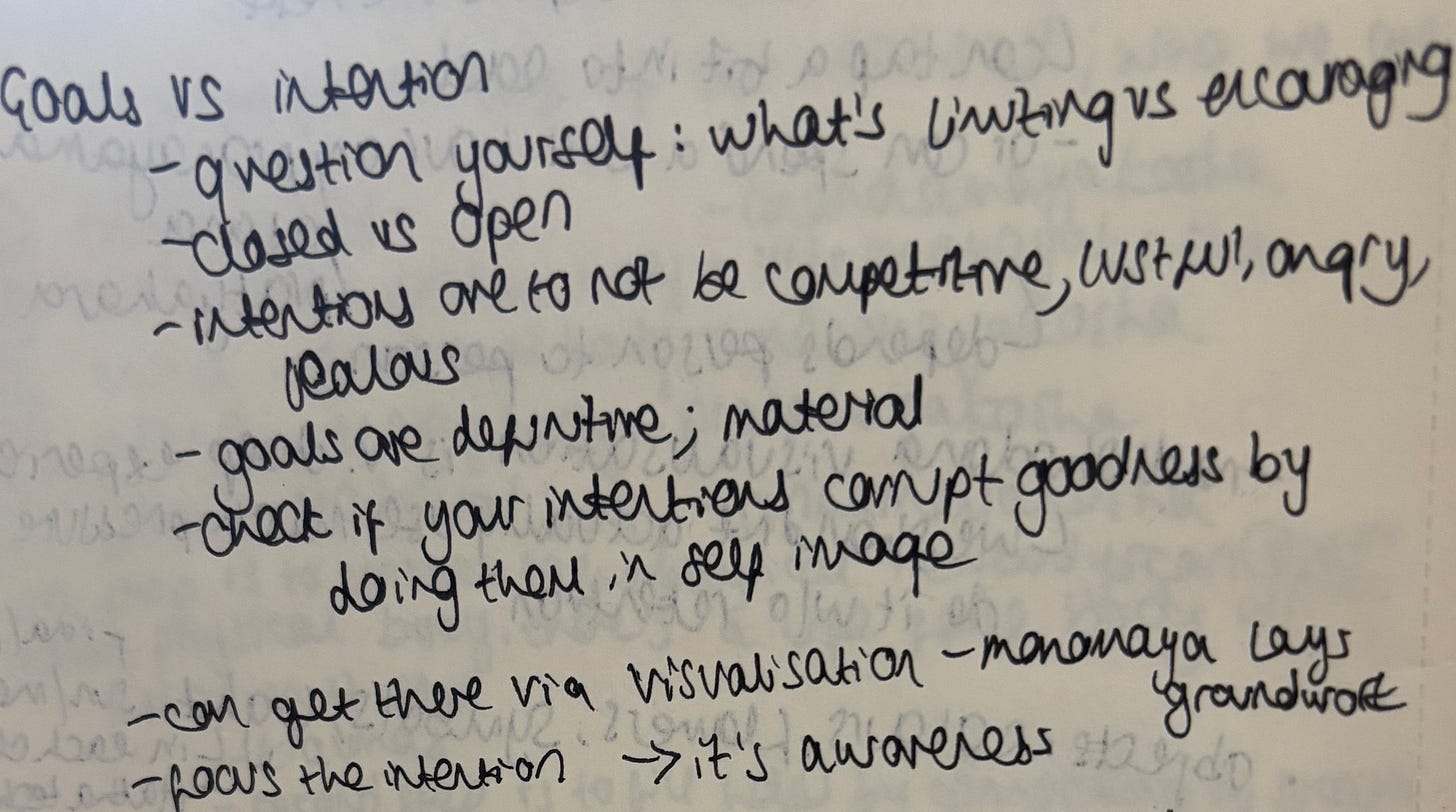

Love reading your annual reflections Eliza! Do you have any translated books in mind?